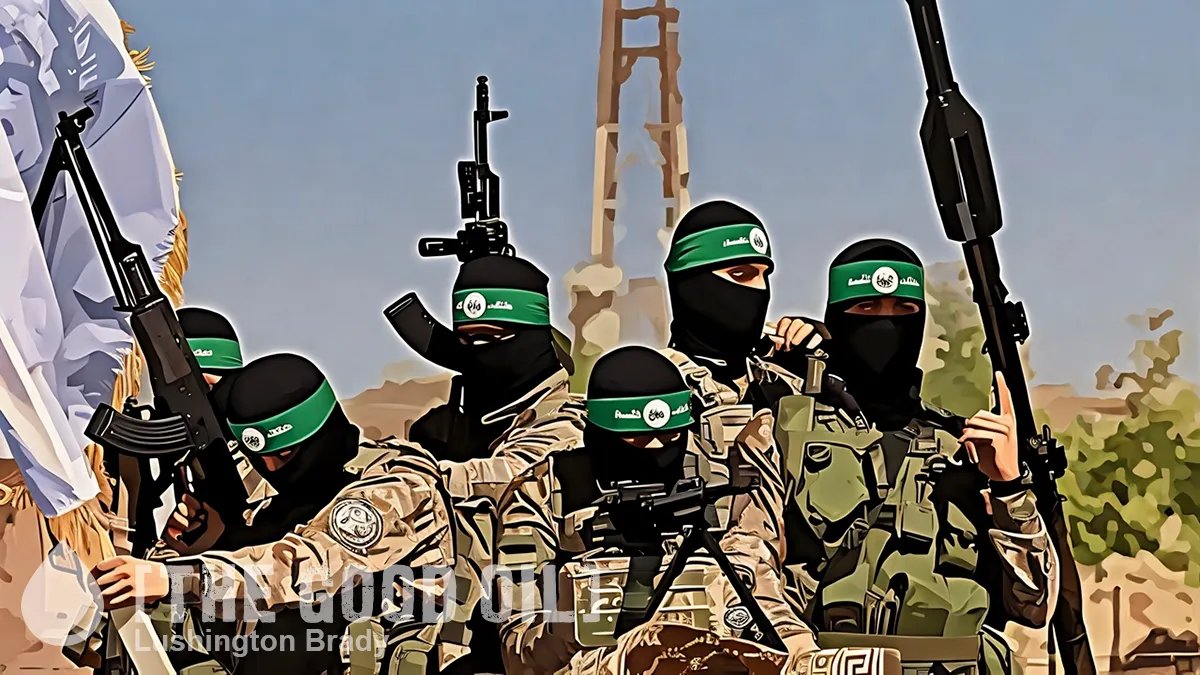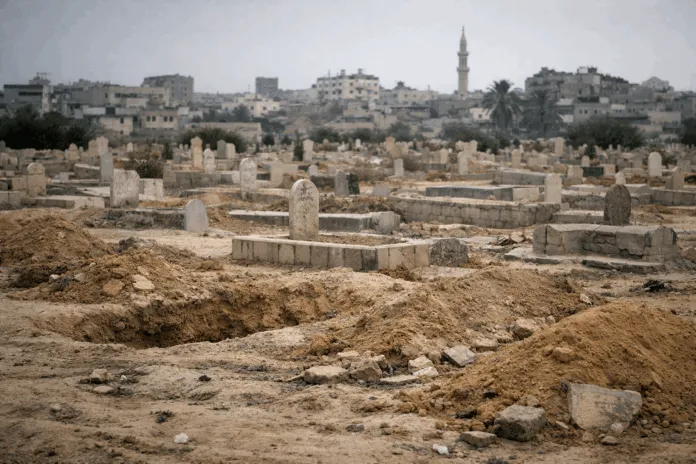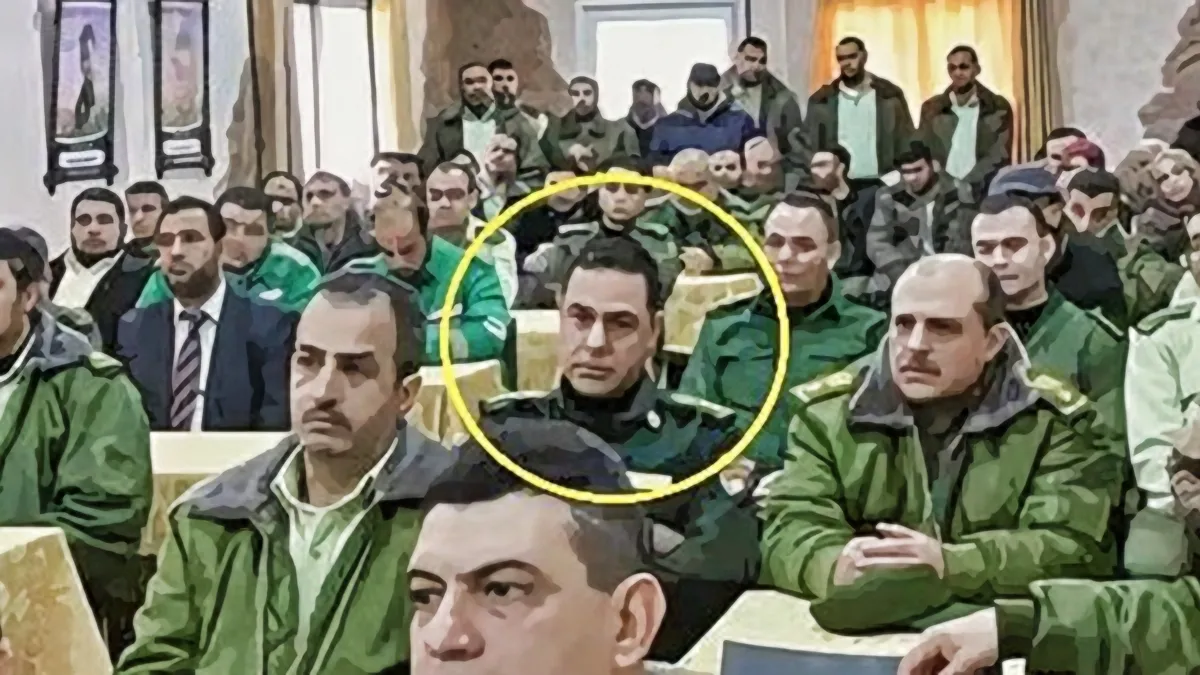Table of Contents
BICOM
BICOM provides accurate, timely and balanced information that is read by officials, experts, journalists and many others.
Gaza Strip: The IDF continues to operate in the northern, central, and southern Gaza Strip against Hamas combatants and its terror infrastructure.
- In Khan Yunis the IDF announced Tuesday, “troops are continuing intensive operations in western Khan Yunis and killed dozens of terrorists over the past day.”
- The air force struck a “Hamas weapons storage facility in Khan Yunis. During the strike, secondary explosions were identified at the site, indicating that large quantities of weapons were stored at the site.”
- “In the central Gaza Strip, IDF troops are continuing to operate and have killed a number of terrorists over the past day.”
- In Gaza City in the north, IDF troops conducted a “targeted raid in the Zaytun area… During the activity, terrorists were killed, and numerous weapons were located.”
- On Tuesday night, the IDF revealed “large quantities of weapons inside a building adjacent to a UN school in Khan Yunis. The school had been used as a humanitarian shelter for Gazan residents. The weapons found by the IDF include AK-47s, warheads, grenades, RPGs and ammunition. The terrorists used a gap in the school wall as a passage to the adjacent building, from which they took their weapons to use in attacks on IDF soldiers.”
- “In parallel, the soldiers worked to evacuate the civilian population from the combat zone for their safety. Approximately 60 terrorists who were hiding among the civilian population and tried to take advantage of the evacuation process to escape, were detained by the IDF.”
- In the last two days two more IDF soldiers have been killed in action, taking the total to 237 since the ground operation begun.
Lebanon: Hezbollah has kept up its daily attacks across northern Israel, firing rockets, anti-tank missiles and launching drones.
- At least two Hezbollah drones have successfully penetrated Israeli air space. One landed in the garden of Mateh Asher Regional Council Head Moshe Davidovitch’s home. Another one fell near Tiberias on Monday. Neither incident resulted in casualties.
- Israel continues to strike Hezbollah target. Over the last few day,s Israel has carried out strikes in Nabatieh and Blida and has also begun to attack Hezbollah targets deeper into Lebanon, including in Sidon.
- Defence Minister Gallant visited troops in the north on Tuesday and told them, “Every day, the IDF is winning and Hezbollah is losing… Nasrallah’s method of equations has collapsed. The IDF operates in Damascus, in Beirut, in Nabatieh and every place necessary.”
Syria: Syrian media reported this morning that Israel fired a number of missiles at a high-rise apartment building in a Damascus neighbourhood, with reports suggesting two people were killed.
- According to a Syrian official, the target of the attack was an Iranian man who had been in the building.
West Bank: Israeli security forces arrested 40 wanted men across the West Bank Tuesday night.
- In a counterterrorism operation in Jenin, troops arrested a number of suspects and killed terrorists, including by air strikes.
- According to Palestinians sources, Araf Kadumi, the commander of Fatah’s al-Aqsa Martyrs Battalions in Qalqilya was killed. Kadumi also served in the past as part of the Palestinian Authorities Security Forces.
- Palestinians are claiming he is the 400th casualty in the West Bank since the war began. The vast majority seem to be armed gunmen, or assailants attempting terror attacks.
Context: The IDF’s latest assessment is that around 12,000 of Hamas’s estimated 30,000 combatants have now been killed since the war begun, whilst Hamas has admitted for the first time that 6,000 of their fighters have been killed.
- In addition it’s likely that several more thousand more have been seriously wounded and no longer able to fight.
- The IDF also revealed that the air force have carried out over 31,000 strikes, including over 1,000 in Lebanon and dozens in the West Bank.
- Israel continues to hunt the senior Hamas leadership that has so far managed to evade capture. There is growing speculation over the location of Hamas leader Sinwar who is considered the mastermind of the October 7th attacks and the highest priority target.
- According to a Saudi media report, Sinwar has escaped from the Gaza Strip into the Sinai and may have taken hostages with him.
- The report could be part of a campaign to delegitimise his leadership in the eyes of the Gazan population. However, Israeli sources say they have no intelligence to support the claim.
- For Israel, he is still most likely hiding in the tunnel network either under Khan Yunis or Rafah.
- Last week, Israel released captured CCTV footage from earlier in the war reportedly showing Sinwar and his family fleeing their home in a tunnel. The release of that footage was also meant to depict him as a coward in retreat.
- On Tuesday, a strategic assessment written by Minister Eisenkot to his partners in the war cabinet was revealed on Channel 12 News. According to the report, Eisnkot gave the following assessments:
- Stripping Hamas of its military and governmental capabilities—partially achieved.
- Freeing the hostages—partially achieved.
- Securing an end to the war in which no threat is posed to Israel from Gaza—not achieved.
- Restoring security to the residents of the Gaza periphery communities—partially achieved.
- Improving Israeli citizens’ sense of personal security and national resilience— not achieved.
- Eisenkot included harsh criticism of the war cabinet writing, “In practice, for the past three months no impactful decisions have been made. The war is being run on the basis of tactical achievements, without meaningful efforts to secure the attainment of strategic objectives.”
- For the third time since the war began, the US vetoed a motion at the UN Security Council calling for an immediate ceasefire. The UK once again abstained.
Looking ahead: In parallel to the military campaign, there are efforts to renew talks over a deal to releases the hostages. Israeli negotiators could return to talks in Cairo in the days ahead.
- The IDF is still preparing plans to launch a ground operation into Rafah, but first needs to facilitate another humanitarian corridor for the non-combatants to be evacuated.
The West Bank in the Shadow of October 7
This BICOM research paper identifies dangerous trends in the West Bank, and maps Israel’s challenges in this arena in the post-October 7 context.
Download BICOM’s briefing here
PODCAST
Episode 227 | US Middle East Policy
In this episode, Jack Omer-Jackaman speaks to Jonathan Paris about the latest US thinking on Israel’s war in Gaza and its regional implications. They discuss the US position on a potential operation in Rafah, President Biden’s push for a two-state solution, and the likely impact of Middle East policy on the next US election. Paris is a London-based analyst, a former Middle East Fellow at the Council on Foreign Relations, and an advisor to the Chertoff Group in Washington.
Listen on Apple Podcasts, Spotify and Google Podcasts
“Resilience, Social Cohesion and Democracy: The Three Keys to Rebuilding Israel After 7 October”
Read here
Top stories from the UK and Israeli media
The BBC, The Financial Times, The Guardian, Sky News, The Daily Mail, The Times and The Telegraph all report that the crew of a Belize-flagged, British-registered cargo vessel have abandoned ship off Yemen after it was hit by missiles fired by the Houthi movement. The Rubymar was in the Gulf of Aden near the Bab al-Mandab Strait when it was hit and the crew abandoned ship. On Monday the Houthis claimed the vessel had sunk. The Telegraph adds that a new report has warned that Houthi rebels could attack Britain’s underwater internet cables.
The BBC, The Independent, The Telegraph, Sky News, The Evening Standard, The Sun, The Times and The Daily Mail all report that Prince William called for an “end to the fighting as soon as possible”, in a strongly worded intervention on the Israel-Gaza conflict. He has spoken of the “terrible human cost of the conflict in the Middle East since the Hamas terrorist attack”. The Spectator asks whether it is wise for Prince William to have commented at all. The Daily Mail also reports that Eylon Levy responded “Israelis of course want to see an end to the fighting as soon as possible and that will be possible once the 134 hostages are released and once the Hamas terror army threatening to repeat the October 7 atrocities is dismantled.”
The BBC, The Sun, The Times, The Daily Mail and ITV News all report that the Home Office is investigating after a baby’s birth certificate was returned with the word “Israel” crossed out in a passport application. The baby’s parents’ birth places were listed as Israel, with the father’s being crossed out.
The BBC, Sky News, The Telegraph, and The Evening Standard all report that Israel’s military says it struck targets near Sidon in southern Lebanon on Monday. Videos shared on social media showed explosions in the town of Ghaziyeh, about 30km (19 miles) from the border with Israel.
The Financial Times and The Guardian report that a US draft resolution warns Netanyahu against a ground offensive in Rafah. The BBC also reports on how the US has vetoed a ceasefire at the UN.
The Financial Times and The BBC assess Israel’s financial situation, as the economy reportedly shrank by 20% following the outbreak of war.
The Financial Times publishes a piece asking the question of how Hamas terrorists would be prosecuted – likening the issue to the Eichmann trials and discussing moral issues.
The Guardian releases an editorial, again calling for a ceasefire.
The Guardian reports that key allies of Israel are discussing how to rein in Netanyahu without letting Hamas retain power in Gaza.
The Guardian also reports that the high court has rejected a legal challenge attempting to curtail arms sales from the UK to Israel.
The Telegraph and The Sun report that Israel denies accusations that Yahya Sinwar and his brother have escaped to Egypt. Security sources in Israel and Saudi Arabia believe Yahya and Mohammed Sinwar may have fled to Sinai desert through a tunnel using captives as human shields.
The BBC reports that the World Food Programme has paused “life-saving” food deliveries to northern Gaza, saying aid convoys had endured “complete chaos and violence due to the collapse of civil order”. The agency says the decision has not been taken lightly and crews had faced crowds, gunfire and looting.
The BBC also reports that Israel’s prime minister missed the chance to starve Hamas of cash, years before its murderous attack last October, according to a former senior Israeli intelligence officer. Udi Levy has told BBC Panorama he advised Benjamin Netanyahu to target Hamas’s finances. He believes this would have hampered the group’s military build-up, but says the intelligence was not acted upon.
Reuters reports on the ICJ case, saying the US and Russia will present arguments on proceedings today.
Sky News reports on a dilemma Labour MPs face today as they will be offered the chance to either support the Tories – who reject a permanent ceasefire in Gaza until all hostages are released – or the SNP position, which calls for an immediate one. The Sun and The Times add that amid pressure from backbenchers, Sir Keir Starmer used the term “immediate humanitarian ceasefire” for the first time
The Independent reports that A trade union representing workers at 11 major Indian ports says it will refuse to operate shipments carrying weapons to Israel amid the ongoing war in Gaza, days after reports emerged that Indian-made drones are being shipped to Tel Aviv.
Maariv previews the imminent publication of a report by Israel’s Association of Rape Crisis Centres in Israel (ARCC) on sexual and gender-based violence committed by Hamas against Israelis on October 7th. The report’s content is gleaned from survivors’ testimonies, interviews with first-responders and people who provided counselling to the victims, though due to the high number of victims of this violence who were subsequently murdered the full extent of the massacre’s sexual and gender-based violence is difficult to quantify. Nonetheless, Maariv, having seen the report, note that it “clearly proves the existence of a clear [Hamas] strategy to commit systematic, deliberate and very brutal acts of sexual abuse… The reports found that the Hamas assault included numerous violent acts of rape that were committed at gunpoint, rapes that in some cases targeted wounded women. There were a large number of acts of gang rape, in which the terrorists cooperated with one another. The report further found that rape was often committed in front of an ‘audience,’ such as the victims’ partners, family or friends, with the goal of increasing the sense of helplessness for all present and to inspire further terror. Hamas terrorists hunted for young men and women who had fled the Nova festival and, according to first-person accounts, dragged them screaming by their hair. The perpetrators targeted women, men and teenage girls alike.”
Yediot Ahronot’s Yossi Yehoshua reports that the IDF has found documents in Khan Yunis showing that Hamas leader Yahya Sinwar’s expectation on October 7th was that Hezbollah would follow up Hamas’s attack in the south with its own in the north. “We received a commitment that the axis would participate in the major liberation project because of the nature of the relationship we have been working on,” the document reads. Yehoshua observes that “the disparity between Sinwar’s expectations… and what happened on the ground raises the question: Why did Hezbollah refrain from taking action that would have further impeded Israel, after it suffered a blow that the public hasn’t yet recovered from? One hypothesis is that in addition to being taken by surprise by the timing of Hamas’s attack, Hezbollah first wanted to assess the operation’s success. By the time it realised the scope of that success, the IDF had already deployed along the northern border in a way that would have effectively foiled Hezbollah’s plans to overrun towns, kibbutzim and moshavim in the Galilee. For want of a better choice, and certainly after the American president’s famous warning, ‘Don’t,’ Hizbullah began to fire on IDF outposts on Mt. Dov and chose to make do with efforts to tire out and wear down the IDF.”
Haaretz features Finance Minister Smotrich saying yesterday that freeing the hostages was not the primary war aim. “That isn’t the most important thing,” he said of hostage negotiations. “It’s important to win. The statements about ‘at any price’ are wrong. This isn’t a competition.” Smotrich qualified his remarks, saying, “The hostages need to be brought back. We need to apply pressure on Hamas. I say to the hostages’ families that we are committed to getting them home. We go to bed with that at night and we will turn over every stone.” Smotrich’s comments drew sharp criticism from Opposition Chairman Yair Lapid, who said, “Smotrich’s attack on the hostages’ families is a moral disgrace. Heartless people can’t continue to lead the State of Israel into the abyss. Smotrich, on your and Netanyahu’s watch, 1,200 Israelis were murdered. On your watch, Israeli citizens, whose fate you’re responsible for, were kidnapped, tortured and raped. Without the hostages’ return, Israel won’t win.”
Kan Radio also repots angry reaction from hostage families to Smotrich’s comments. Several of the hostages’ relatives blocked traffic last night on Begin Boulevard and Shaul Hamelech Boulevard in Tel Aviv near the Kirya while the war cabinet was in session on the site. Eli Albag, whose daughter Liri was kidnapped, accused Smotrich of forsaking his daughter and the other hostages. Albag said, “Mr. Smotrich, let them take your children! Let them take your children, and I’ll yell in the streets, ‘That isn’t the most important thing.’ And I am telling all the citizens of Israel: Anyone who thinks that the kidnapped citizens aren’t important—let them kidnap your children and then you can talk.”
Army Radio includes news that Iran’s Oil Minister Javad Owji has said Israel was behind last week’s attack on Iranian gas pipelines. Explosions hit a natural gas pipeline running from Iran’s western Chaharmahal and Bakhtiari Province up north to cities on the Caspian Sea, with Owji saying that “the enemy’s plan was to completely disrupt the flow of gas in winter to several main cities and provinces in our country.”
Ynet also features Brazilian Foreign Minister Mauro Vieira criticising Israel’s response to Brazilian President Lula’s comments last week comparing Israel to the Nazis. “What’s happening in the Gaza Strip with the Palestinian people hasn’t happened at any other moment in history,” Lula told reports during a visit to the African Union summit. “Actually, it has happened: when Hitler decided to kill the Jews.” During a visit to Yad Vashem Holocaust Museum with Brazilian Ambassador Frederico Meyer on Monday, Israeli Foreign Minister Katz said that Israel “will not forget nor forgive,” calling Lula’s comments “a serious antisemitic attack” and that the Brazilian president is “persona non grata in Israel until he takes it back.”
Recommended Reading Call for unilateral recognition of a Palestinian state complete legal misconception, Alan Baker, The Jerusalem Post
- “Any unilaterally imposed recognition of a Palestinian state by the international community would be tantamount to undermining this final clause of the Oslo Accords.” Read more
Israel can avoid a war in the north, Giora Eiland, Ynet
- “If the war in Gaza is prolonged the war in the north becomes inevitable but there are creative ways Israel can bring an end to the violence on both fronts, if it so choses and if it enlists support from the US” Read more
Biden’s Grand Bargain to Remake the Middle East, Amy McKinnon and Robbie Gramer, Foreign Policy
- “The Biden administration is laying the groundwork for an ambitious grand bargain that would tie rapprochement between Israel and Saudi Arabia to substantial steps toward Palestinian statehood, according to nine analysts and former U.S. government officials familiar with the plans. The long-shot diplomatic gamble could remake the Middle East and define U.S. President Joe Biden’s foreign-policy legacy, but it faces staggering challenges that many fear will be insurmountable.” Read more









